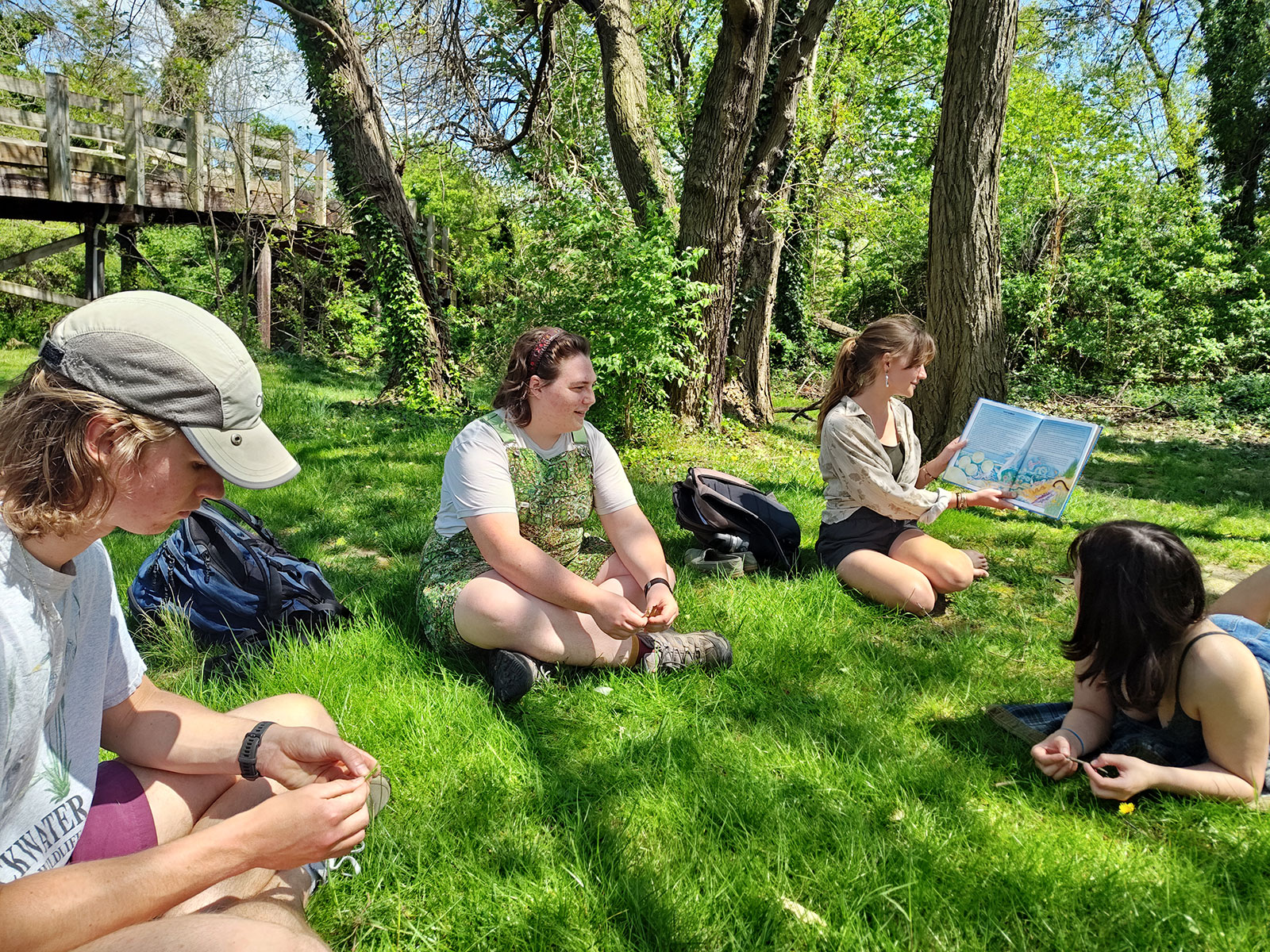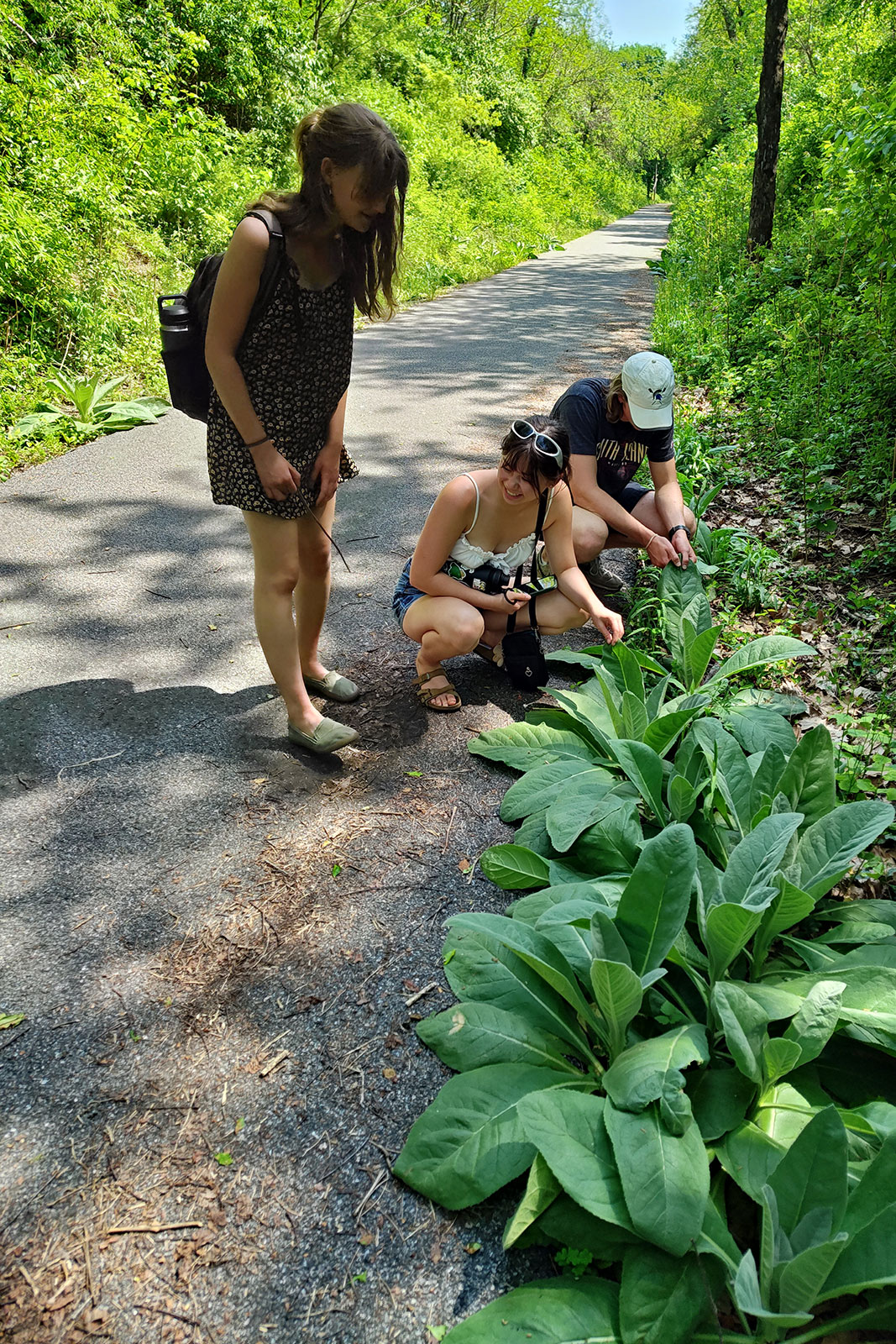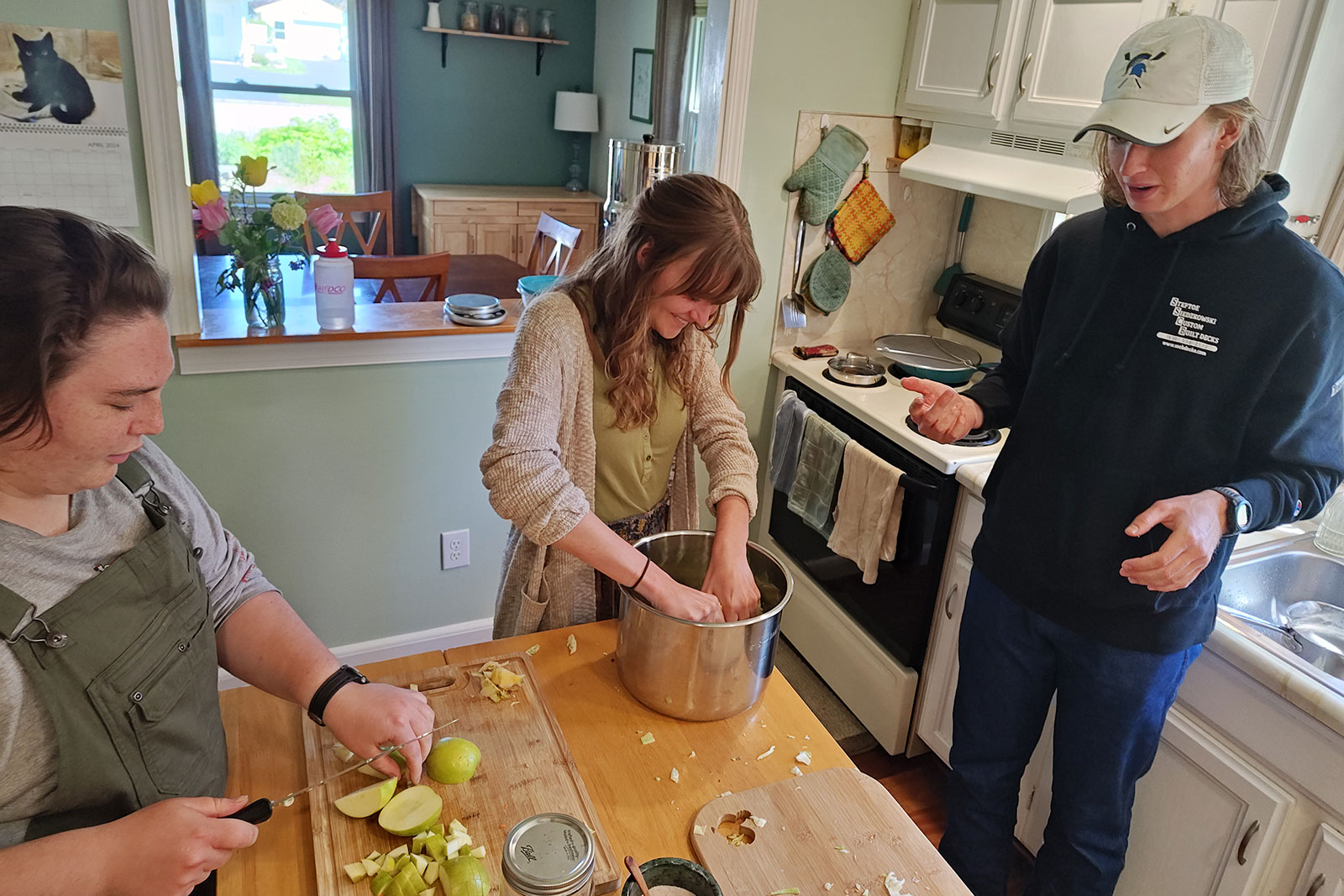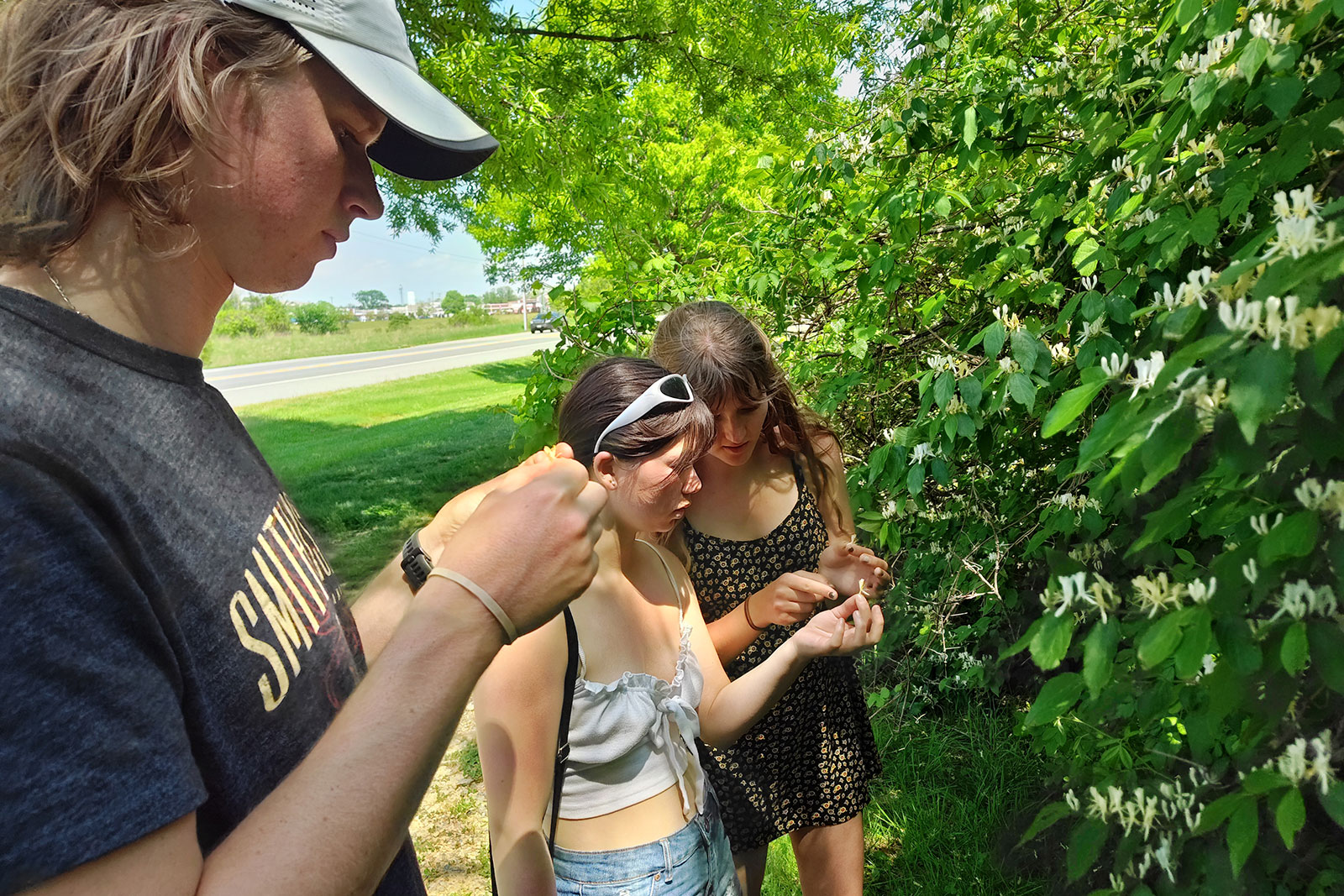Permaculture Internship
The Permaculture Internship focuses on the hands-on development of ecological design skills involved in regenerative food production systems.

Permaculture Interns are the field agents and food producers within our Lifelong Learning program. Interns learn a life-enriching design philosophy and practice an ecologically mindful way of being.
Course Overview
Under the guidance of Shane Brill, the Permaculture Intern explores permaculture methods ranging from apiary management to wildcrafting. Film viewings and readings will supplement weekly seminar meetings. Research and design will lead to real-world project implementation. Interns have opportunities to meet food producers, local environmental advocates, develop horticultural and herbal expertise, and discover insights into the connection between personal and environmental well-being.
Topics Covered
Aquaculture, composting, edible landscaping, ethnobotany, food security, medicinal herbs, natural building, and resiliency skills; energy conservation technologies; land restoration techniques; food forests, plant guilds, and gardens for self-sufficiency; patterns in nature and culture; principles of natural systems; social justice and community activism; sustainable design methodologies; water harvesting techniques; wildlife management and biological pest control.
Required Workday Attendance
Interns must be available Fridays at 3pm for Campus Garden workdays, with additional flexibility to attend special workshops and trainings.
 Internship Opportunities
Internship Opportunities
Interns will have priority registration for cocurricular programs relating to culinary wellness, foraging, herbal medicine, and more. Interns can also get resources to develop projects of personal interest, have access to a permaculture library, and enjoy use of a fully outfitted campus kitchen.
Student Responsibilities
This unpaid, non-credit bearing internship consists of 70 work hours, or about 5 hours per week. Responsibilities include:
- Conduct weekly sector analysis of a campus landscape and use the permaculture methodology to develop and implement a design to improve its functionality.
- Maintain a journal of activities and participate in discussion-based seminar.
- Read Practical Permaculture and watch assigned permaculture films.
- Develop 5 plant research profiles for publication on the Lifelong Learning website.
- Produce wild and seasonal foods at community events including a Permaculture Potluck community gathering, Spring Migration weekend for alumni, and the annual May Day Celebration at the garden.
- Support community programming on campus related to food and environmental literacy.

